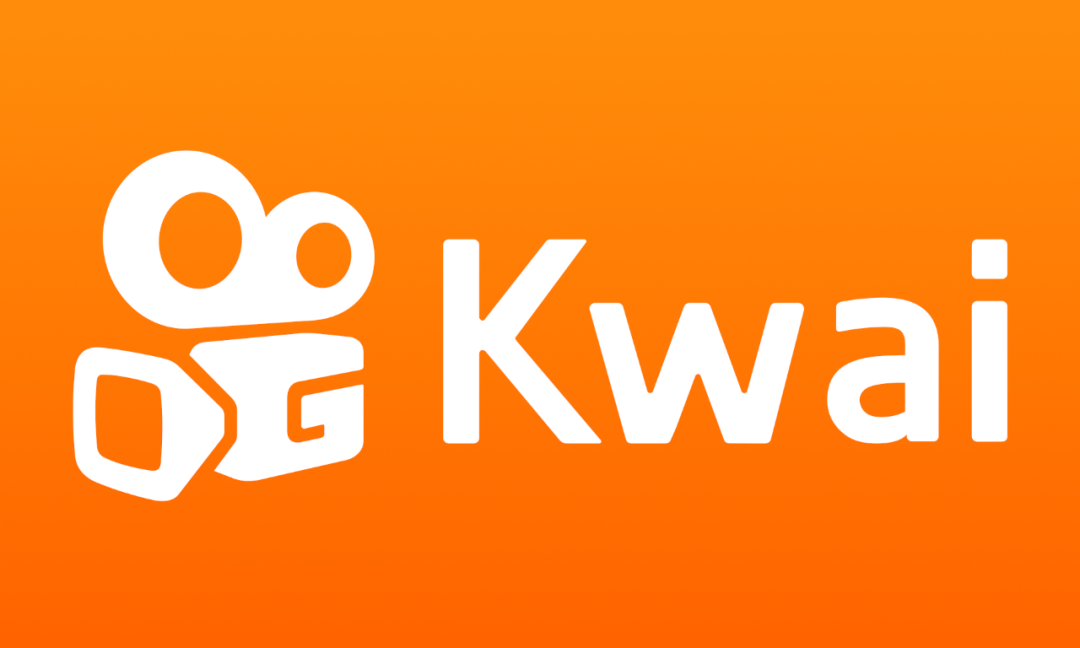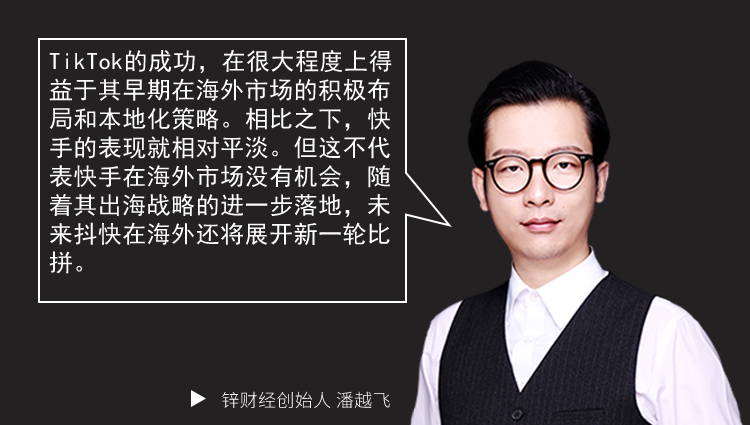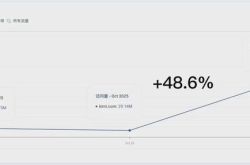Kuaishou Goes Global, Brazil Becomes a Stronghold
![]() 06/18 2024
06/18 2024
![]() 498
498

Author: Chen Yan
Editor: Dafeng
Kuaishou has put a lot of effort into expanding overseas.
During a recent forum in Saudi Arabia's capital market, Jin Bing, Kuaishou's Chief Financial Officer, stated: "The Middle East and North Africa regions, as well as the Brazilian market, hold immense business opportunities. These regions have a large population, strong consumption power, and locals are receptive to new things, innovative thinking, and new business models."
He also revealed that Kuaishou Technology plans to open an office in Riyadh, the capital of Saudi Arabia, in the near future.
Domestically, Douyin and Kuaishou are both giants in the short video industry, often referred to as "Douyin in the South, Kuaishou in the North." However, in overseas markets, TikTok, owned by Douyin, has gained significant momentum in recent years. According to a recent report by Statista, as of April 2024, TikTok's global downloads have exceeded 4.92 billion, making it the fifth most popular social app globally.
In contrast, Kuaishou's Kwai lags far behind, having struggled for 8 years with little success.
However, overseas markets are a crucial soil that Douyin and Kuaishou cannot afford to abandon. As domestic traffic peaks and user growth saturates, it has become increasingly difficult for them to replicate their past rapid growth. Looking outward for a new second growth curve is almost a necessity.
01
Brazil Becomes the Main Battlefield
The Brazilian audience has been very supportive.
While Kwai's performance in other countries may not compare to TikTok, in Brazil, the local audience has been the main force. According to reports, Kwai's monthly active user base in Brazil has exceeded 60 million; in 2023, the average daily usage time exceeded 70 minutes, ranking second on Brazil's app store download charts.
Brazil's total population is approximately 215 million, and 60 million represents almost 30%. That means two or three out of every ten Brazilians are heavily into Kwai.
To compete with TikTok and capture Brazil's short video market, Kuaishou has made numerous attempts.
This year, Kwai sponsored Flamengo, Brazil's most famous football team.

Flamengo Football Club
Brazil is a football powerhouse, with football DNA almost ingrained in its locals. Cheng Ji, the head of Kuaishou's international operations, once said that during the 2022 World Cup, Brazil was empty, "traffic in the entire city was paralyzed, everyone stopped to watch the game, and bars were packed with people."
With this strategy, Kuaishou aims to quickly capture local users' hearts, reach potential audiences, establish market recognition as a mainstream platform locally, and thereby open the doors to the mainstream business society.
In recent years, the domestic short drama market has been booming, and Kuaishou has simply replicated this experience in Brazil. Initially, Kuaishou collaborated with domestic agencies to find local actors in Brazil to film. Later, they found that directly teaching the methodology to local Brazilian agencies was faster, as they could create short dramas incorporating local culture.

Facts have proven that fast-paced, dramatic, and emotionally charged plots are well-received worldwide. Brazilians also enjoy plots like "a gambling father, a terminally ill mother, a dropout brother, and a broken woman," where characters sell their children for dreams or experience unexpected plot twists like infidelity and betrayal.
According to reports, Kwai's short drama section, TeleKwai, achieved over 3 billion views within three months of its launch. By November 2022, after less than nine months, the views exceeded 7.53 billion.
To monetize traffic, Kuaishou launched TeleKwai and simultaneously introduced Kwai for business to generate advertising revenue, such as product placement in short dramas. Currently, advertising is Kuaishou's primary source of income overseas.
From a monetization perspective, according to the latest financial report, Kuaishou's overseas business revenue reached 991 million yuan in the first quarter of 2024, representing a year-on-year increase of 193.2%, and the overall operating loss decreased by 67.4% year-on-year. Although the overseas business has yet to emerge from the loss abyss, the trend is upward.
02
Repeated Setbacks in Going Global
In fact, Brazil was not Kuaishou's first choice. As early as 2016, Kuaishou began exploring overseas business.
Due to strategic mistakes at the start and limited resources, Kuaishou's overseas expansion progress was not smooth.
By the end of 2021, Kuaishou proactively adjusted its strategy, shifting from global expansion to focusing on three major regions: Brazil, Indonesia, and the Middle East. It only competed with ByteDance in Brazil, while Indonesia and the Middle East were key areas for breakthrough attempts.
This led to the current situation.
Initially, Kuaishou chose to launch Kwai in countries like South Korea and Russia for its first wave of testing. In 2017, a group of Korean celebrities like Lee Ji Eun and G-Dragon popularized a special effect on Kwai, unexpectedly propelling it into the limelight. In October of the same year, Kwai's downloads in South Korea exceeded 10 million, dominating South Korea's app store for eight consecutive days.

Korean celebrities on Kwai
During this process, Kuaishou burned money aggressively to attract traffic, pushing Kwai's downloads to the top of Google Play and App Store charts in countries like Indonesia and Russia.
However, the heat didn't last long. After downloads stabilized, Kwai struggled to make further breakthroughs, and its downloads fell out of the rankings.
Meanwhile, TikTok was rapidly rising, occupying a high ground in the North American market. By the end of 2018, TikTok's monthly active user base reached 271 million, almost doubling the following year.
In the rivalry between Kwai and TikTok, a crucial mistake made by Kuaishou was not acquiring Musical.ly.
Musical.ly was a popular short video app in the United States at the time, with a cumulative global registered user base of 240 million by 2017. However, Musical.ly later encountered development bottlenecks and began seeking buyers. At the time, many internet giants, including ByteDance, Kuaishou, Facebook, and YouTube, had acquisition intentions.

In November 2017, ByteDance acquired Musical.ly for a whopping $1 billion and subsequently integrated Musical.ly's users into TikTok, quickly establishing a firm foothold in the market.
Su Hua, Kuaishou's former CEO, recalled that at the time, Kuaishou had the most in-depth communication with the Musical.ly team as a potential buyer. However, ByteDance suddenly intervened with a $1 billion offer, causing Kuaishou to miss out. "We didn't have much money at the time, and this was a significant event, but it wasn't the deciding factor."
In the following years, Kuaishou still didn't give up directly competing with TikTok. In 2020, it entered the North American market with a new product, Zynn, hoping to catch up with TikTok through "sprinkling money."
Zynn offered very attractive incentives for new users, offering $20 for registration and up to $110 through various activities like referring new users and watching videos. With cash subsidies, Zynn briefly surpassed TikTok, topping the App Store's download charts in the US.
However, Zynn was soon forced to be removed from the App Store and Google Play due to violation issues. When it was relaunched, the cash reward mechanism was quietly canceled, and users' download enthusiasm subsided.
In August 2021, Kuaishou announced the closure of Zynn, marking the failure of its plan to challenge TikTok in North America. From its launch to its removal, Zynn existed for only 16 months.
03
Localized Content Operations are Paramount
Looking back, the core reason Zynn couldn't survive was that Kuaishou only wanted to achieve miracles through brute force, without putting effort into building a high-quality content community.
On Zynn, some accounts posted content in a mix of English and Spanish, creating a poor community atmosphere. Low-quality and plagiarized content was widespread, leading users to gradually lose interest, and the platform thrived on attracting new users but died from retention.
This was also a problem that Kuaishou had for a long time. Its understanding of overseas business was not profound, and it failed to deeply cultivate the market and conduct refined operations, thinking that simply replicating its domestic model abroad would suffice. At the end of 2017, Su Hua optimistically said, "We have covered all 56 ethnic groups in China, so what's difficult about going overseas to dozens of countries?"

Su Hua, Kuaishou's former CEO
In the early stages of Kuaishou's overseas expansion, its overseas business team's office was not located locally but in Beijing headquarters. The team lacked communication with local markets and had little understanding of their cultural customs. According to 36Kr, besides Liu Xinhua, the head of overseas operations, there were not many members with an international background, and even fewer could use English as a working language.
When overseas businesses encountered any issues, they needed to report directly to relevant overseas market responsible persons located in Beijing.
After experiencing a series of setbacks, Kuaishou finally realized the problem and began to refine its fundamentals, spending every penny wisely. Kuaishou's current performance in the Brazilian market also represents that its overseas expansion has achieved initial success.
In the face of its long-standing rival TikTok, Kuaishou will never easily admit defeat.








